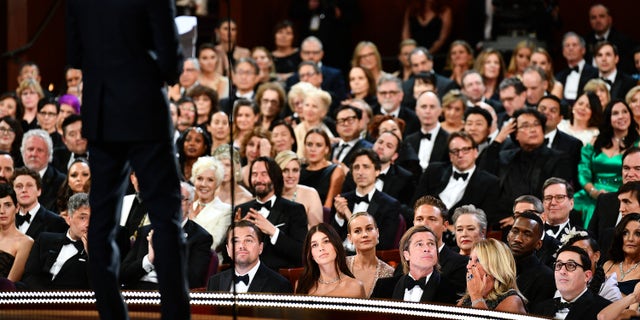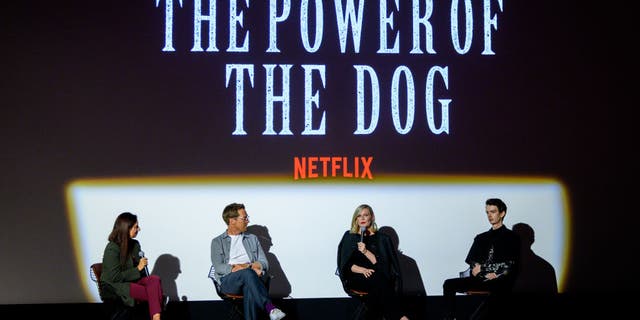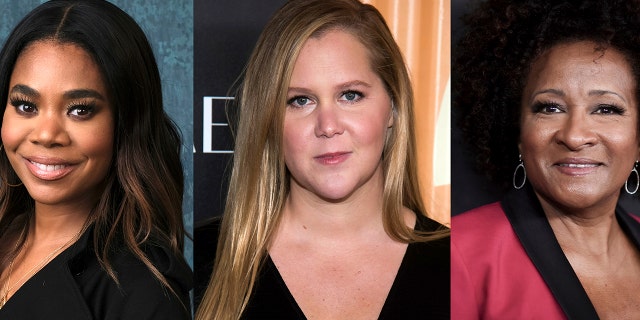The Oscars may be on ‘life support’ with floundering ratings: ‘Iceberg is in sight,’ expert says
Fox News Flash top entertainment headlines for March 24
Fox News Flash top entertainment and celebrity headlines are here. Check out what clicked this week in entertainment.
The 94th Academy Awards are only hours away.
However, despite the allure of the star-studded affair set to head back to its rightful place at the famed Dolby Theatre in Hollywood, California, on Sunday, the 2022 Oscars hasn’t been without controversy as it struggles to find its footing amid a landscaper of ever-changing viewing habits and dismal ratings in recent years. Now, an expert is weighing in on if this is the end of the era for Tinseltown’s biggest night.
In order to mitigate a ratings’ lull, the Academy has said that it plans on eliminating eight of its honors from the show in an effort to streamline the floundering telecast and that the awards would be presented off-air and then edited into the program itself.
“This year, those categories presented in the evening’s first hour and seen later in the live broadcast are, alphabetically: Documentary (Short Subject), Film Editing, Makeup and Hairstyling, Music (Original Score), Production Design, Short Film (Animated), Short Film (Live Action), and Sound,” Academy of Motion Picture Arts and Sciences president David Rubin wrote in an open letter to Academy members last month.
The decision has sparked backlash across the industry with actor Dylan O’Brien, tweeting: “Wow f— this,” in response to the news.
Even beforehand, celebrities like actor and comedian Seth Rogen noted to Variety that he doesn’t get “why movie people care so much [about the Oscars] if other people care what awards we give ourselves.”
Entertainment and IP attorney Tom Lallas — who represented the late comic book and Marvel legend Stan Lee before his death in 2018 — spoke to Fox News Digital, explaining what he believes is the “real problem” as it pertains to the Academy Awards show itself.
“ABC controls a television product that has ratings that have fallen off a cliff,” he said, explaining that in 1998 when James Cameron was the Oscars’ star attraction with “Titanic,” there were 57.25 million viewers. Last year in 2021, there were 9.85 million viewers — a whopping one-sixth, as many as there were barely 20 years ago.
In this handout photo provided by A.M.P.A.S. Leonardo DiCaprio, Brie Larson, Brad Pitt, Kathy Bates and Mahershala Ali sit in the audience during the 92nd Annual Academy Awards at the Dolby Theatre on Feb. 9, 2020 in Hollywood, California.
(Photo by Richard Harbaugh – Handout/A.M.P.A.S. via Getty Images)
“Now, we have to be brain-dead, not to take into consideration the real-world consequence of COVID,” said Lallas. “As recently as [2019], there were 29.6 million viewers, so that was three times what it was last year, and that’s a reflection of the fact that people were still going to movies. In 2020, at the very front end of COVID, there were twice as many as last year, which was [23.6] million [viewers]. So COVID has had a really dramatic catastrophic consequence on the movie-going public, and that trickles down to the broadcast that ABC televises.”
Benedict Cumberbatch, Kirsten Dunst, and Kodi Smit-McPhee attend "The Power Of The Dog" screening at the Paris Theater on October 02, 2021, in New York City. The Jane Campion-directed film is nominated for 12 Academy Awards.
Just 10 years ago in 2011, the Academy Awards broadcast achieved 37.6 million viewers, and Lallas believes the film world is currently seeing a collateral effect of an even bigger problem, which is a change in viewership of movies in totality.
“Ask yourself now whether because of COVID or otherwise, would you rather pay $40 or $50 to go to a public movie theater or would you rather see streaming movies on your flat-screen television in your screening room, at your home for a fraction of that price?” he inquired, adding, “I think that the excluded eight have been scapegoated for a problem not of their making. It is a tacit implicit, if not explicit, manifestation of changing tastes in America.”
Admitting that he has yet to see any of this year’s Oscar-nominated films, Lallas also pressed that given the fact ABC holds the broadcast rights to the Academy Awards until 2028, he believes the network will have no choice but to adapt to movie-going and television viewing habits or else “the iceberg is in sight.”
“If you go back and look at the most recent Winter Olympics, viewership was down precipitously,” he explained. “People are doing different things. Ask yourself this question: Would I rather go to a movie with all that implies in a public theater or would I rather watch Kevin Costner, Kelly Reilly, Cole Hauser and other great actors in ‘Yellowstone?’ I know what the answer would be for me.”
“Another permutation of the question would be to change ‘Yellowstone’ to ‘Game of Thrones’ or even ‘Breaking Bad’ — the entertainment options are organic and an ever-changing dynamic, and the model of spending Friday or Saturday night at a movie theater as inert as recreational entertainment may be in our rearview mirror,” said Lallas.
Regina Hall, from left, Amy Schumer and Wanda Sykes, who are hosting the 94th Academy Awards.
Film industry’s biggest night will be hosted by Amy Schumer, as well as actress Regina Hall and fellow funny woman Wanda Sykes, and Lallas says that the production team behind the Oscars is likely hoping that the millennial following each headliner can draw more people into consuming the show on their time.
Jimmy Kimmel was the last person to host the Oscars in 2018.
“Each of those three hosts has a constituency, and all of them appeal to millennials and the younger generation of movie viewers, so I don’t think it’s an accident that in effect. The producers have created a coalition government to provide over the Oscars show to try to revive it because it might be on the operating table or on life support right now,” said Lallas. “So yes, I think that these three have a chance because they’re talented to inject new enthusiasm into the show.”
According to Lallas, the phenomenon people are seeing are two different subjects — one being the broadcast of the Academy Awards show and the other being the movie itself, “which is the arc and trajectory of movies in America as a cultural recreational experience.”
The historian said when he looks back on the film world in retrospect, Lallas defines the golden age of movies as the 1950s and 60s while others might include the 1940s as well.
“There was a sharp, bright-line distinction between the ascendant art form, which was movies and the second tier lower class artistic medium, which was television,” Lallas said, explaining that given the time period the mediums were as different as night and day.
“Movie stars often did not want to work on television programs because they feared it would tarnish their brand. Now there is not that same differentiation, and more importantly, the television has become a medium for the exhibition and display of feature films,” he explained in delineation. “We can get all the movies that we want to access via streaming, so everything about the cultural movie phenomenon and experience is different.”
As for the three Academy Awards show hosts, Lallas points to who were the greatest hosts of all time as being Billy Crystal, who hosted the show nine times; Bob Hope, who hosted it 19 times either individually or with others; and Johnny Carson, who hosted the show five times.
Those three individuals had star power,” he said in comparing this year’s trio of headliners. “So if the Academy Awards Guild wants to successfully deal with the problem, it shouldn’t eliminate the excluded eight [categories]. It should create a better show with better writing, better content and better masters of ceremonies. And that might deal with the issue of trying to regain a foothold in the viewership of the American audience. But these poor individuals who spent their career dedicated to their craft in the categories of the excluded eight should not be viewed as the pariahs or the scapegoats for this problem.”
The show, set to air on March 27, will also see a band mashup of epic proportions, including the likes of Blink-182 drummer Travis Barker, jazz pianist Robert Glasper and legendary singer-percussionist Sheila E.
Source: Read Full Article






